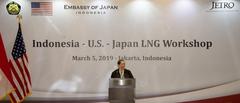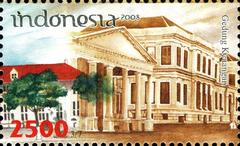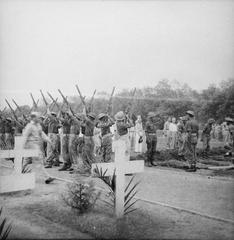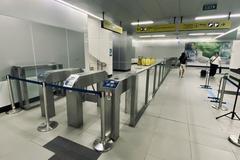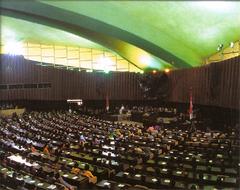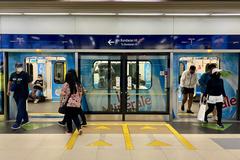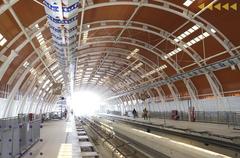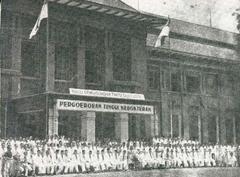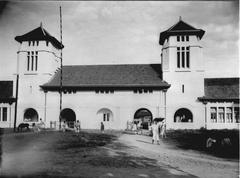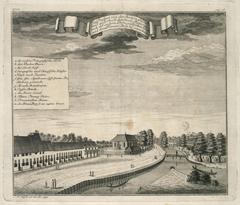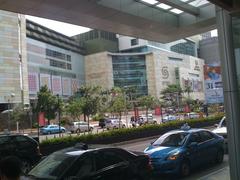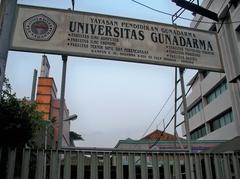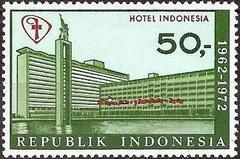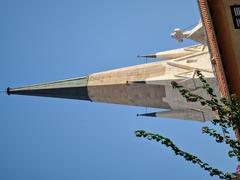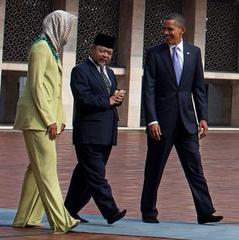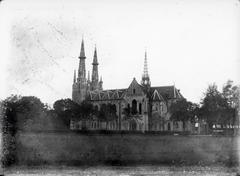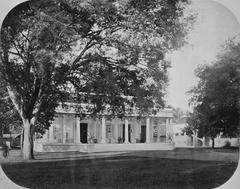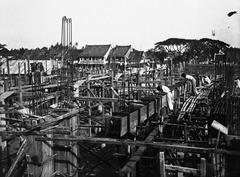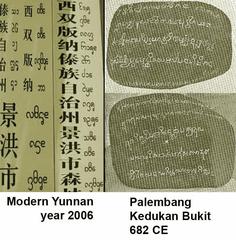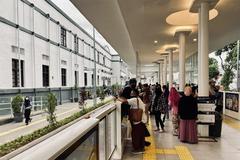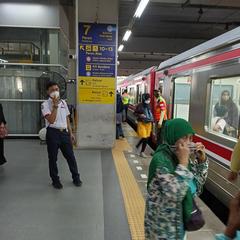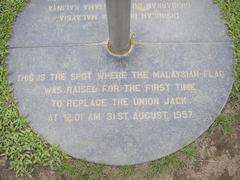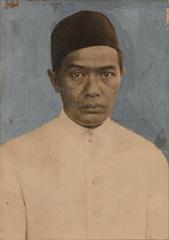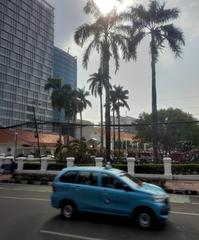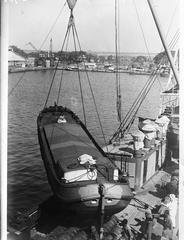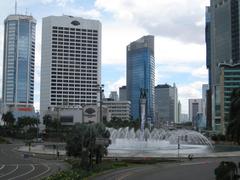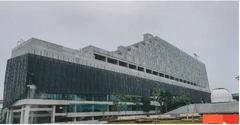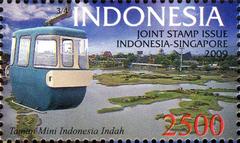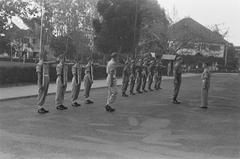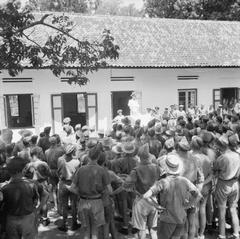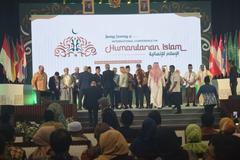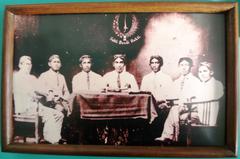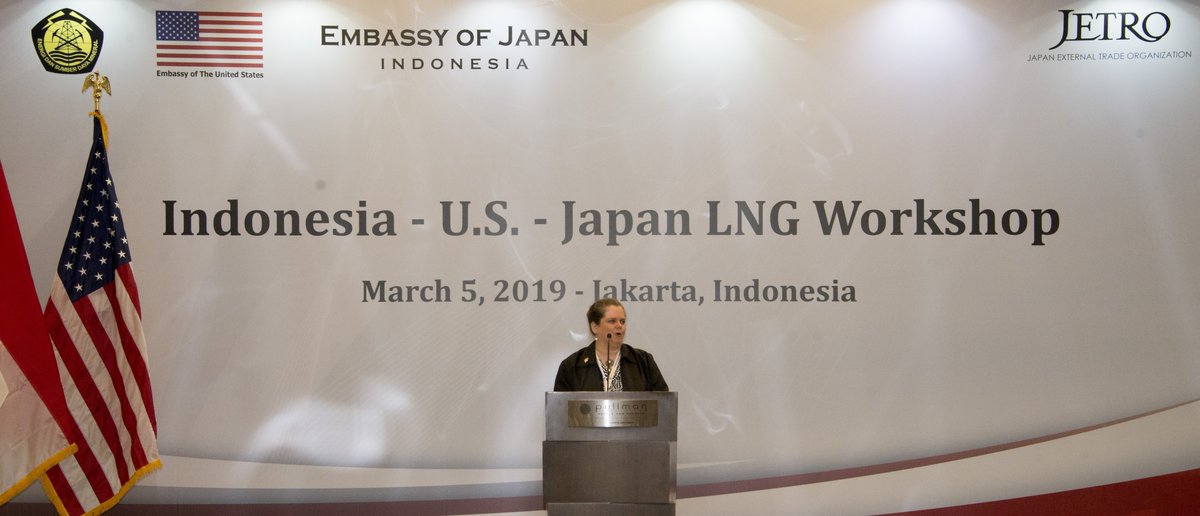
Embassy of Japan in Jakarta: Visiting Hours, Tickets, and Visitor Information
Date: 15/06/2025
Introduction
The Embassy of Japan in Jakarta is a cornerstone of Indonesia–Japan relations, reflecting decades of diplomatic, economic, and cultural cooperation. Established following the 1958 Agreement on Compensation, the embassy not only manages consular and diplomatic affairs but also serves as a prominent hub for cultural exchange and public engagement. Conveniently located in Central Jakarta on Jalan M.H. Thamrin No. 24, the embassy is accessible for both official business and select public events, making it an essential destination for travelers, expatriates, and those interested in international relations.
This guide provides a comprehensive overview of the Embassy of Japan in Jakarta, including its historical context, diplomatic roles, consular services, visitor information, accessibility, and nearby attractions. Whether you are preparing for travel to Japan, seeking consular assistance, or interested in exploring cultural ties between the two nations, you will find detailed, practical information in this article. For further details and updates, refer to the official embassy website and reputable sources such as Wikipedia: Indonesia–Japan relations, Kompas: 65 Years of Diplomatic Relations, and Embassies.info.
Table of Contents
- Introduction
- Establishment of Diplomatic Relations
- Historical Context: From Occupation to Partnership
- The Embassy’s Role in Bilateral Relations
- Cultural and People-to-People Exchanges
- Symbolic and Architectural Significance
- Practical Visitor Information
- The Embassy as a Platform for Regional and Global Cooperation
- Notable Diplomats and Public Figures
- Addressing Historical Memory and Reconciliation
- Frequently Asked Questions (FAQ)
- Conclusion and Call to Action
- References
Establishment of Diplomatic Relations
Formal diplomatic ties between Indonesia and Japan began on January 20, 1958, following a period of post-war negotiation and reconciliation. The opening of the Embassy of Japan in Jakarta marked a new era, transitioning the relationship from one of wartime occupation to that of close partnership. The 1958 Agreement on Compensation, following the San Francisco Peace Treaty, laid the foundation for deepening political, economic, and cultural ties (Wikipedia: Indonesia–Japan relations).
Historical Context: From Occupation to Partnership
During World War II, Indonesia (then the Dutch East Indies) was occupied by Japan for over three years. The occupation left a complex legacy, with some Japanese soldiers later remaining in Indonesia and contributing to its fight for independence. Approximately 3,000 Japanese soldiers stayed, and many were honored as heroes of Indonesia’s struggle (Wikipedia: Indonesia–Japan relations). Post-independence, negotiations over reparations and normalization led to the formal establishment of embassies and comprehensive bilateral cooperation.
The Embassy’s Role in Bilateral Relations
Political and Diplomatic Engagement
The Embassy of Japan in Jakarta is the main conduit for diplomatic communication, facilitating state visits, parliamentary exchanges, and multilateral cooperation, particularly given Jakarta’s role as the ASEAN headquarters (Kompas: 65 Years of Diplomatic Relations). The embassy also represents Japanese interests in regional forums and hosts regular dialogues on political and security matters (Wikipedia: List of Diplomatic Missions in Indonesia).
Economic and Development Cooperation
Japan is a leading investor and trading partner for Indonesia. The embassy manages economic relations, supports the negotiation and implementation of trade and investment agreements, and oversees development assistance through the Japan International Cooperation Agency (JICA). High-profile projects, such as the Jakarta MRT, symbolize the practical benefits of this cooperation (Kompas: 65 Years of Diplomatic Relations).
Security and Defense Collaboration
Contemporary security ties have expanded, with Japan supplying defense equipment and participating in joint exercises alongside Indonesia, the U.S., and Australia, reflecting ongoing efforts to promote regional stability and maritime security (Wikipedia: Indonesia–Japan relations).
Cultural and People-to-People Exchanges
The embassy is a center for cultural diplomacy, organizing language classes, cultural festivals, and exchange programs. The removal of visa requirements for biometric-passport holders in 2014 boosted tourism and facilitated deeper people-to-people ties. Around 11,000 Japanese expatriates reside in Indonesia, while about 24,000 Indonesians work and study in Japan (Wikipedia: Indonesia–Japan relations). The consular section supports these communities with essential services and information.
Symbolic and Architectural Significance
Situated at Jalan M.H. Thamrin No. 24, Jakarta Selatan 10350, the embassy’s architecture blends Japanese aesthetics with modern functionality. It stands as a daily reminder of the close partnership between the two countries, hosting official events, exhibitions, and cultural programs (Wikipedia: Kedutaan Besar Jepang, Jakarta).
Image: The Embassy of Japan in Jakarta, noted for its blend of Japanese design and modern architecture.
Practical Visitor Information
Visiting Hours
- Office Hours: Monday to Friday, 08:30 AM – 04:30 PM
- Closed: Weekends and Indonesian/Japanese public holidays
Visitors should confirm the latest schedule via the official embassy website as hours may vary during national holidays (Embassy Info).
Entry and Accessibility
- Entry: By appointment only. No walk-ins permitted except in emergencies.
- Identification: Valid passport or Indonesian ID required.
- Security: Bag checks and metal detectors are mandatory.
- Accessibility: Wheelchair accessible; staff can assist visitors with special needs.
Guided Tours and Events
The embassy does not offer regular guided tours but occasionally opens for public cultural events and exhibitions. Announcements are made via the official website and social media.
How to Visit
- Location: Jalan M.H. Thamrin No. 24, Central Jakarta
- Public Transport: Close to Bundaran HI MRT and TransJakarta bus lines
- Parking: Limited; public transport or ride-hailing apps (Gojek, Grab) recommended
Nearby Attractions
- National Monument (Monas): Indonesia’s iconic independence landmark
- Museum Nasional: Extensive collection of Indonesian cultural artifacts
- Sarinah Department Store: Historical shopping center
- Menteng District: Renowned for colonial-era architecture
Consular Services and Visa Information
Consular Services
The embassy offers a full suite of consular services:
- Visa application and processing
- Passport renewal for Japanese nationals
- Notarial and legalization services
- Emergency assistance
Visa Application Process
- Short-term Stay (Tourism, Business, Relatives): Up to 90 days; requires valid passport, application form, photograph, travel and financial documents (Embassy Visa Info).
- Long-term and Special Visas: For work, study, or family reunification; additional documents may be needed.
- Visa Fees: Fees vary by visa type; typically payable in IDR.
- E-Visa Status: As of June 2025, Indonesian citizens must apply in person or through accredited agencies. E-visa not yet available (Embassy Visa Info).
Accredited Travel Agencies
A list of authorized agencies is available on the embassy’s visa information page, facilitating group and specialized visa applications.
Cultural Etiquette at the Embassy
- Dress modestly; business or smart casual attire is appropriate.
- Greet staff politely; bowing is customary but a nod is acceptable.
- Remain quiet in waiting areas and follow queue protocols.
- Do not bring large bags or cameras; photography is prohibited inside.
- Place documents or cash on the provided tray rather than handing directly to staff.
The Embassy as a Platform for Regional and Global Cooperation
The embassy supports Indonesia–Japan collaboration in international forums such as the UN, G20, and APEC, and plays a key role in ASEAN-centered initiatives (Wikipedia: Indonesia–Japan relations; Wikipedia: List of Diplomatic Missions in Indonesia).
Notable Diplomats and Public Figures
Ambassadors like Masafumi Ishii have strengthened ties by engaging with Indonesian society and culture, fostering goodwill and public diplomacy (Wikipedia: Indonesia–Japan relations).
Addressing Historical Memory and Reconciliation
The embassy participates in initiatives honoring those affected by the wartime occupation, including ceremonies at Kalibata Heroes’ Cemetery, which is significant for reconciliation and mutual respect (Wikipedia: Indonesia–Japan relations).
Frequently Asked Questions (FAQ)
Q: What are the embassy’s visiting hours?
A: Monday–Friday, 08:30 AM–04:30 PM; closed on weekends and public holidays.
Q: Do I need a ticket to visit the embassy?
A: No tickets are required. Consular visitors must have an appointment.
Q: Is the embassy accessible to the public?
A: Access is limited to those with appointments or attending public events.
Q: Are there guided tours?
A: Not regularly, but public cultural events may be announced online.
Q: What are the nearby attractions?
A: National Monument, Museum Nasional, Sarinah Department Store.
Conclusion and Call to Action
The Embassy of Japan in Jakarta is a vital institution for diplomatic, cultural, and consular engagement, symbolizing the resilient partnership between Indonesia and Japan. For visitors, understanding the embassy’s functions, visiting hours, and etiquette ensures a smooth and rewarding experience. Always consult the official embassy website and social media for the latest updates on services and events.
Plan your visit today!
Explore Jakarta’s vibrant history and culture by including the Embassy of Japan on your itinerary. Download the Audiala app for travel tips and up-to-date information on embassies and historical sites.
References
- Wikipedia: Indonesia–Japan relations
- Kompas: 65 Years of Diplomatic Relations
- Embassies.info: Japanese Embassy in Jakarta
- Official Embassy of Japan Jakarta Visa Page
- Official Embassy of Japan Jakarta Main Page
